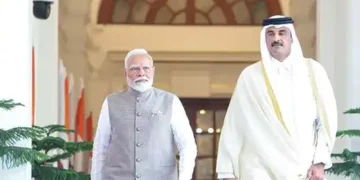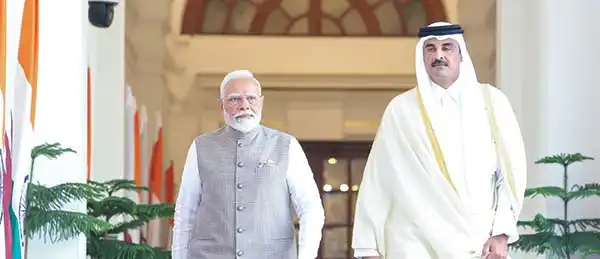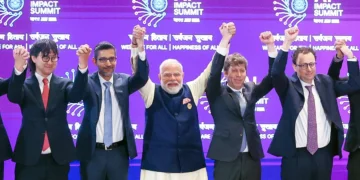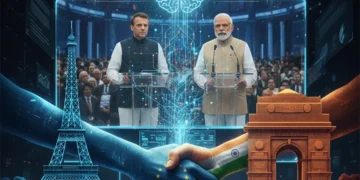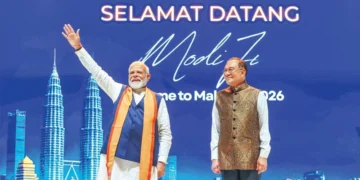Deepak Dwivedi
As geopolitical dynamics in the Gulf evolve, India has been elevating its relationships with the countries in the region. Within the Gulf Cooperation Council, it has already signed strategic partnership agreements with the UAE, Saudi Arabia, Oman and Kuwait.
Qatar is the latest to join that prestigious club. During Qatar Emir Sheikh Tamim bin Hamad Al Thani’s state visit to New Delhi on February 17 and his talks with Prime Minister Narendra Modi, the two countries decided to elevate their ties to a ‘strategic partnership’, double the target of bilateral trade to $28 billion in the next five years, and bring Qatari investment of $10 billion to India.
India and Qatar share deeprooted historical ties of friendship, trust, and mutual respect. Indians in Qatar make up a formidable 27 per cent of its population. Highlevel bilateral visits have been a regular feature – the Emir’s state visit to New Delhi in 2015, PM Modi’s trips to Doha in 2016 and last year – all underscoring robust engagement.
India’s External Affairs Minister SJaishankar’s visit to Doha earlier this year underscores the priority New Delhi accords to the relationship between the two countries. During Sheikh Al Thani’s second visit to India, both countries signed two agreements and five MoUs, covering areas like economic cooperation, youth affairs and a double-taxation avoidance agreement.
The two leaders also discussed the situation in West Asia where a ceasefire and hostage-prisoner swap deal has paused the conflict between Israel and Hamas.
As Qatar has emerged as one of the top players in the US-sponsored ceasefire between Isreal and Hamas, this enables India to leverage its role as a peacemaker in the resolution of the ongoing conflict in the Middle East.
The joint communique issued after the Qatar Emir’s visit said the two leaders discussed ways and means to promote cooperation in cybersecurity, including prevention of use of cyberspace for terrorism, radicalisation and for disturbing social harmony. “They emphasised the importance of holding regular meetings of the Joint Committee on Security and Law Enforcement,” it added.
The India-Qatar relationship is deeply entwined with regional stability and strategic considerations in volatile West Asia. The successful resolution of the 2023 episode involving eight former Indian Navy officials is a testament to India’s diplomatic leverage and the personal rapport between PM Modi and the Qatari Emir.
As geopolitical dynamics in the Gulf Cooperation Council (GCC) region evolve, with India deepening its ties with the wider GCC bloc, maintaining a strong and nuanced relationship with Qatar remains paramount.
The India-Qatar relationship is too strategically vital to be taken for granted; it demands constant nurturing, strategic foresight, and a clear-eyed understanding of the shifting sands of global geopolitics.
